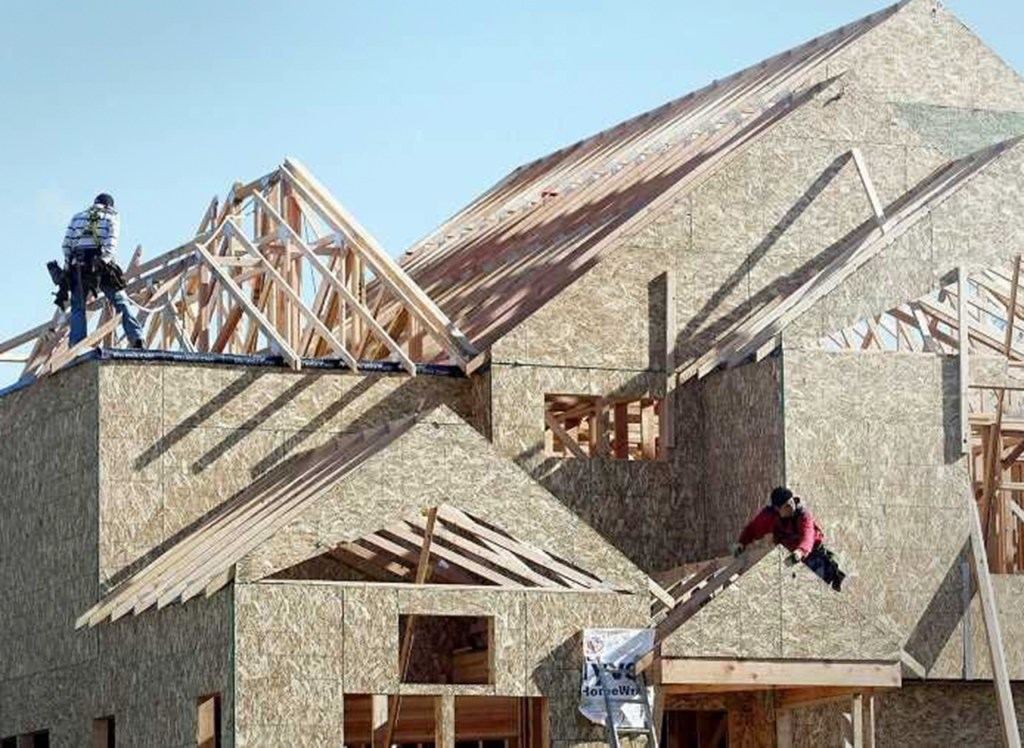Council approves $743K to help fund SPARK Newberg project
Published 5:00 am Wednesday, July 16, 2025

- The Newberg City Council has approved a large grant to a new organization formed to address the growing affordable housing crisis in town -- SPARK Newberg.
Program designed to teach financial literacy while providing housing for 20 families in Newberg or Dundee
The Newberg City Council has approved a large grant to a new organization formed to address the growing affordable housing crisis in town.
At its June 16 meeting, the council approved distributing nearly $743,000 to SPARK Newberg and $350,615 to Newberg Area Habitat for Humanity from the construction excise tax funds remaining after the city curtailed the program in 2023. Since then the city has, through a competitive process, granted hundreds of thousands of dollars to various organizations.
Trending
The council’s decision didn’t come without some consternation, though. City staff and the Affordable Housing Commission, in making their recommendations prior to council deliberation, recommended that only Habitat receive the grant because it had met the city’s criteria for construction excise tax funding, while SPARK had not.
Some councilors, while praising SPARK’s goal of constructing a complex to house 20 families until they receive financial training toward buying homes of their own, questioned why they would counter the staff and commission’s recommendation and fund SPARK and not Habitat.
“I would be very irritated if I was Habitat and walked through the hoops that they did, went to the extent of everything that they were required to (do) and then not get something out of it,” Councilor Mike McBride said.
Ultimately, McBride suggested awarding the $350,615 grant to Habitat and the remainder of the construction excise tax funds to SPARK, effectively emptying the fund.
Councilor Peggy Kilburg praised the presentation by SPARK’s representatives and endorsed their effort to address the affordable housing crisis. She also recognized the criteria the Affordable Housing Commission used to make its recommendation, with some reservations.
“I don’t feel like the city council is obligated to make our decision based on those criteria that they used in making their recommendation to us,” she said.
Trending
That the program is new and unproven made it difficult to get off the ground, she added.
“Part of it is you’re new,” Kilburg said. “I mean, it’s an amazing initiative, but it’s that Catch-22 of how can I get a grant until I can show I’ve had a grant. You have to have something to start with.”
Kilburg said she would vote to give all the money to SPARK because Habitat doesn’t need the funding to finish its current project, but had applied so as to free up resources for future projects.
In the end the council voted 4-1 to approve Habitat’s request and grant $742,934 of the remaining construction excise tax funds to SPARK. Mayor Bill Rosacker, one of the founders of SPARK, recused himself from voting. Kilburg voted against approval, and Council Derek Carmon was absent from the meeting.
A novel approach at affordable housing
Rosacker said he came up with the idea for SPARK on the belief that the remaining construction excise tax funds should not be awarded to existing nonprofit groups, such as Habitat for Humanity, because they would only build one or two homes with the money.
Instead, he testified during the June 16 council meeting that the city needed to find an organization that would apply the resources toward building housing for numerous individuals and families.
Rosacker said he reached out to his cohorts at a local Rotary club with the idea of creating such an organization. He characterized the cohorts as “movers and shakers” in the community that had expertise that would be helpful in creating such an organization. Soon a board was formed, and the organization applied to the state for nonprofit status, which it has yet to receive.
The SPARK board of directors include Doug Cain, Todd Hall, Rob Felton, Rosacker, Peggy and Mike Taylor, Dennis Lewis and Brian Naffin. Rosacker is president, Cain is secretary and Naffin is treasurer.
Cain, the chief philanthropy officer at Providence Newberg Health Foundation and past president of Earlybird Rotary Club, said SPARK wants to purchase property on which to build a 20-unit housing complex, probably in two phases of 10 units each. The first phase would run about $4 million; Phase 2 would cost about $3.2 million and include 10 more units.
Cain explained at the council meeting that there is a key demographic in the community that needs help: people who are employed, oftentimes in jobs that pay well, but still cannot afford to buy a home in Newberg and are forced to commute long distances.
“These are examples that are — they’re not strangers. They’re our teachers, they’re our nurses, they’re employers. And without action we risk losing them,” Cain said. “We want people who want to be here in Newberg to invest in Newberg, and the best way we can do that is for them to help them make a difference. These are people that help our community thrive and yet no longer can afford to live here in Newberg.”
SPARK, which stands for Supporting People in Achieving Resilience and Knowledge, is designed to help that demographic become homeowners via financial training.
Eligibility criteria for the people the group is targeting includes households challenged with attaining home ownership, earning less than 80% of area median income (around $91,000 for a family four in Yamhill County), who agree to participate in coaching, including finance classes, who are residents and who are employed with the boundaries of the Newberg-Dundee school district.
The process for potential tenants is they apply (with the help of Love INC), move into one of the program housing units and participate in a 48-month program. A monthly “fee” of approximately $1,600 will be assessed to pay for administrative costs, which are expected to be low because the preponderance of the organization’s members are volunteers.
Tenants will receive financial training, including budgeting, expense tracking, emergency planning, debt management, credit management, investment strategy, retirement planning, insurance evaluation, tax planning and ongoing education. If they successfully complete that training they can apply for a grant of more than $30,000 that would go toward a down payment on buying a home. The grants are funded by the monthly fee charged to each tenant.
Love INC, Embold Credit Union and George Fox University have expressed an interest in helping with the program, Cain said. He added that SPARK envisions the program carrying on for many years, that he hopes for a 80%-plus rate of completion of the training and would strive for homeownership within five years of completion of the program.
Cain said the unit would be more like apartments with all the amenities needed for families and added that adopting a fee system rather than rent was an important distinction.
“We are intentionally trying not to establish a tenancy agreement,” he said. “This is going to be more like a college program, and they will be able to stay there for up to four years.”
Convincing people to join the program
Council President Elise Yarnell Hollamon, who said she has been trying to get an affordable housing project done for years, queried Rosacker and Cain on what would be the incentive for somebody to pay roughly the same as they would for an apartment down the street to join this program. Especially, she added, as some of those families and individuals are battling substance abuse, health care needs and other difficulties.
“I want to believe that those people are out there,” she said. “I want to believe that if I looked on the list that all the people on the board it would be inspiring and all of those things.”
Cain replied, “It’s going to be a challenge, but they set the criteria based on what working people are paying for apartments and whatnot. (They are) targeting the people that are in the same ballpark, but want to move forward.”
Naffin added, “I think the incentive is what’s on the back end of this. What’s waiting for them. The opportunity that they will have funds set aside, which if they were just to go out and rent there’s no funds set aside after 48 months. … For me, I would look at it like, ‘Yeah, that’s free money. Let’s do it.’”







